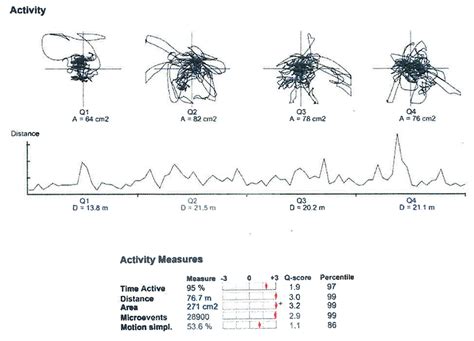Beyond the Score: Understanding Your QB Test Results
The QB test, or Quantifiable Bipolarity test, isn't simply a number; it's a window into a complex area of mental health. Understanding your results requires more than just glancing at the final score. This article will delve deeper into interpreting your QB test, addressing common questions and concerns surrounding this crucial assessment.
What Does My QB Test Score Actually Mean?
The QB test doesn't diagnose bipolar disorder. Instead, it's a screening tool designed to identify individuals who may benefit from further evaluation by a mental health professional. A high score suggests a higher likelihood of experiencing symptoms consistent with bipolar disorder, but it's not a definitive diagnosis. It's crucial to remember that only a qualified psychiatrist or psychologist can make a formal diagnosis based on a comprehensive clinical assessment, including a thorough review of symptoms, medical history, and potentially other diagnostic tools.
What are the Different Components of a QB Test?
Most QB tests encompass several key areas to assess the spectrum of bipolar symptoms. These typically include questions evaluating:
- Mood fluctuations: This assesses the intensity and frequency of mood swings, ranging from extreme highs (mania or hypomania) to extreme lows (depression).
- Energy levels: Significant shifts in energy levels, from periods of hyperactivity to periods of lethargy, are crucial indicators.
- Sleep patterns: Disrupted sleep, including insomnia or excessive sleeping, is a common symptom of bipolar disorder.
- Cognitive function: This explores changes in concentration, memory, and decision-making abilities.
- Behavioral changes: This evaluates shifts in behavior, including impulsivity, risk-taking, and social withdrawal.
The specific questions and their weighting within the test will vary depending on the version used.
If My QB Test Score is High, What Should I Do?
A high QB test score warrants a consultation with a mental health professional. This isn't a cause for alarm, but rather a call to action. A professional can conduct a full assessment, discuss your symptoms in detail, and determine the best course of action. This might include further testing, a diagnosis, and a personalized treatment plan. Remember, seeking help is a sign of strength, not weakness.
What if My QB Test Score is Low?
A low score doesn't automatically mean you're free from any mental health concerns. It simply suggests that, based on the test's assessment, your symptoms aren't currently indicative of bipolar disorder. However, you might still be experiencing other mental health challenges, such as anxiety or depression. If you're still concerned about your mental wellbeing, it's always recommended to seek professional guidance. Mental health is complex, and a single test is rarely sufficient for a complete understanding.
Can a QB Test Diagnose Bipolar Disorder?
No. The QB test is a screening tool, not a diagnostic tool. It can help identify individuals who warrant further evaluation, but it cannot definitively diagnose bipolar disorder. A formal diagnosis requires a comprehensive assessment by a qualified mental health professional.
Are There Different Types of QB Tests?
While the core principles remain consistent, different versions of the QB test may exist, with variations in the number of questions, scoring methods, and specific areas of focus. The interpretation of the results should always be guided by the specific instructions and guidelines provided with the particular test administered.
What Other Tests Might My Doctor Use?
Your doctor or psychiatrist might use additional diagnostic tools to aid in determining a diagnosis. This could include clinical interviews, mood tracking charts, and other psychological assessments to gather a comprehensive picture of your mental health.
This information is intended for educational purposes only and should not be considered medical advice. If you have concerns about your mental health, please consult with a qualified mental health professional for an accurate diagnosis and personalized treatment plan.

